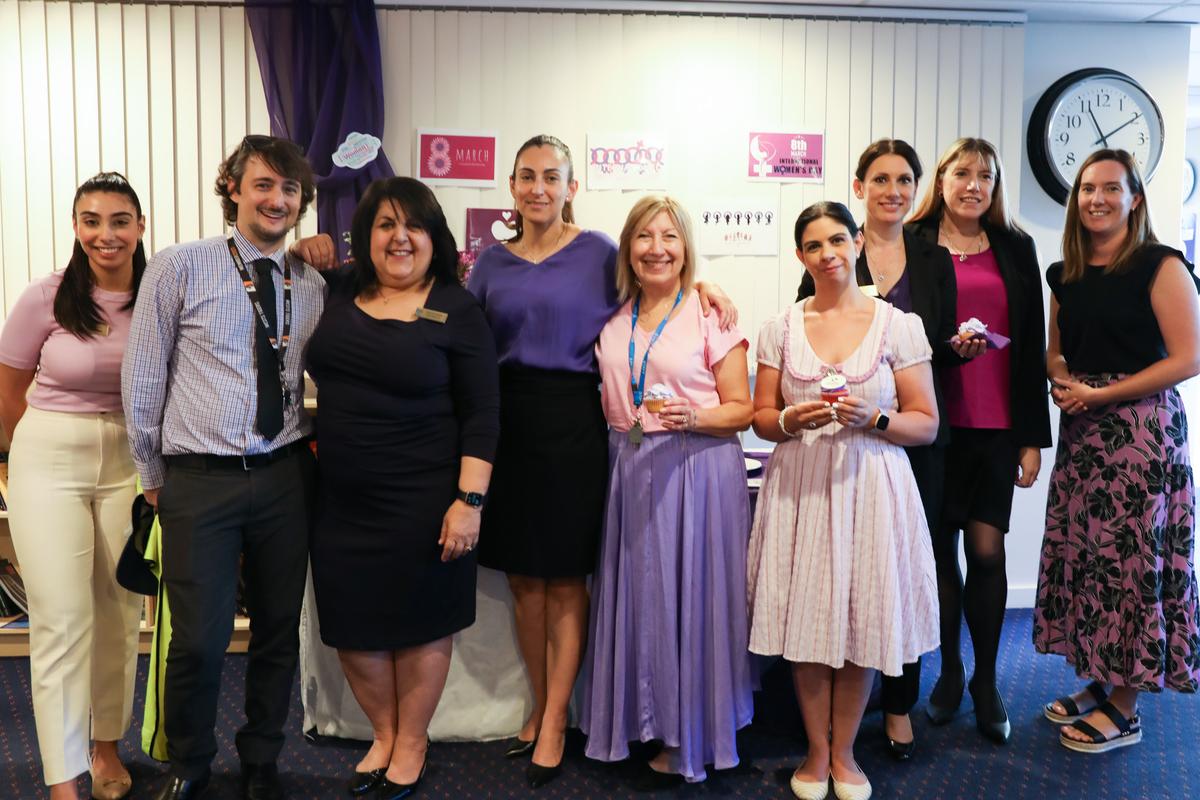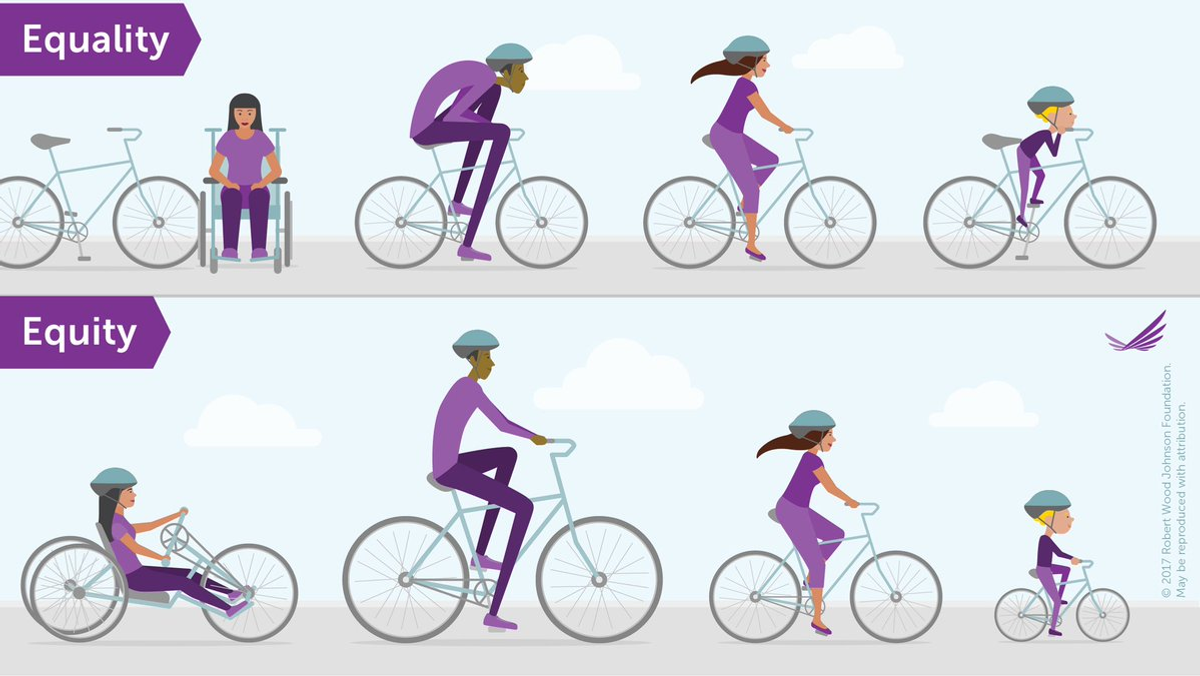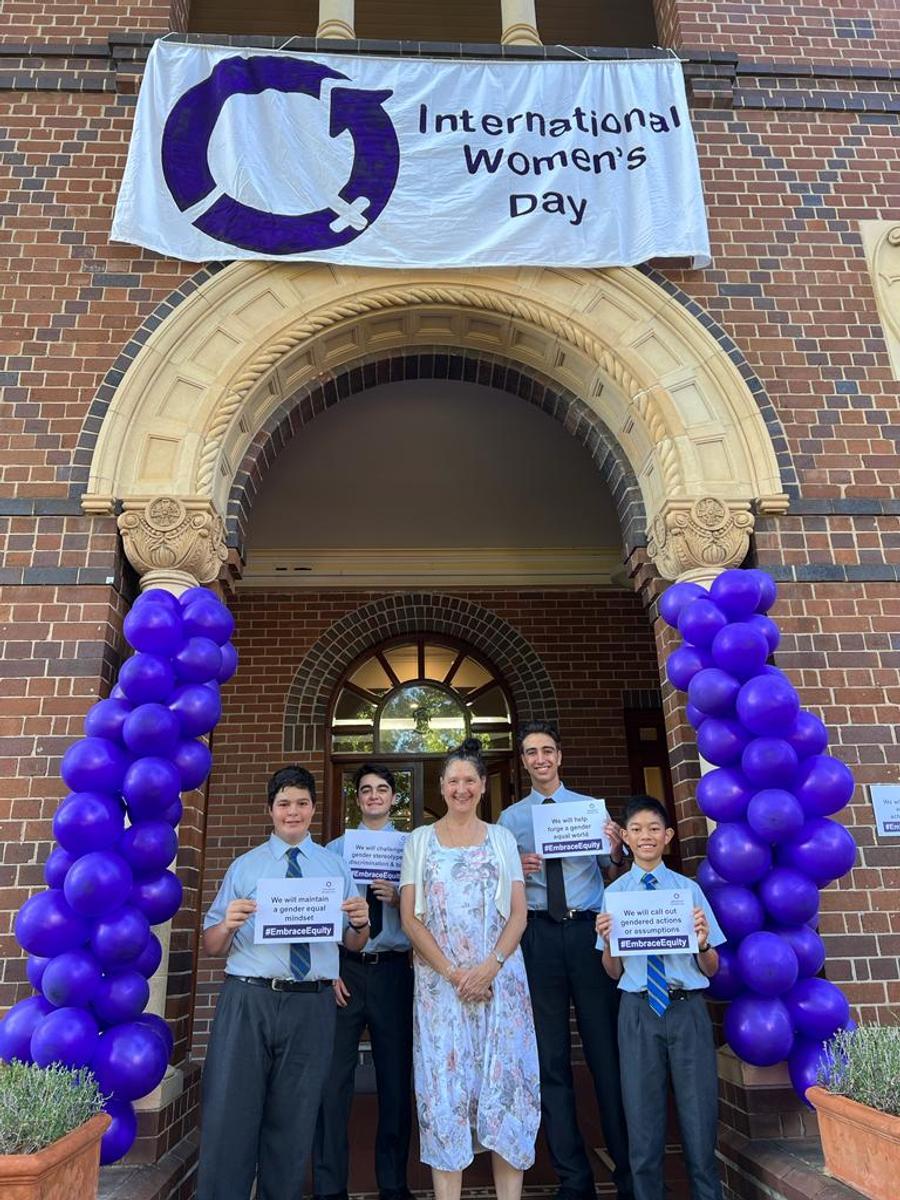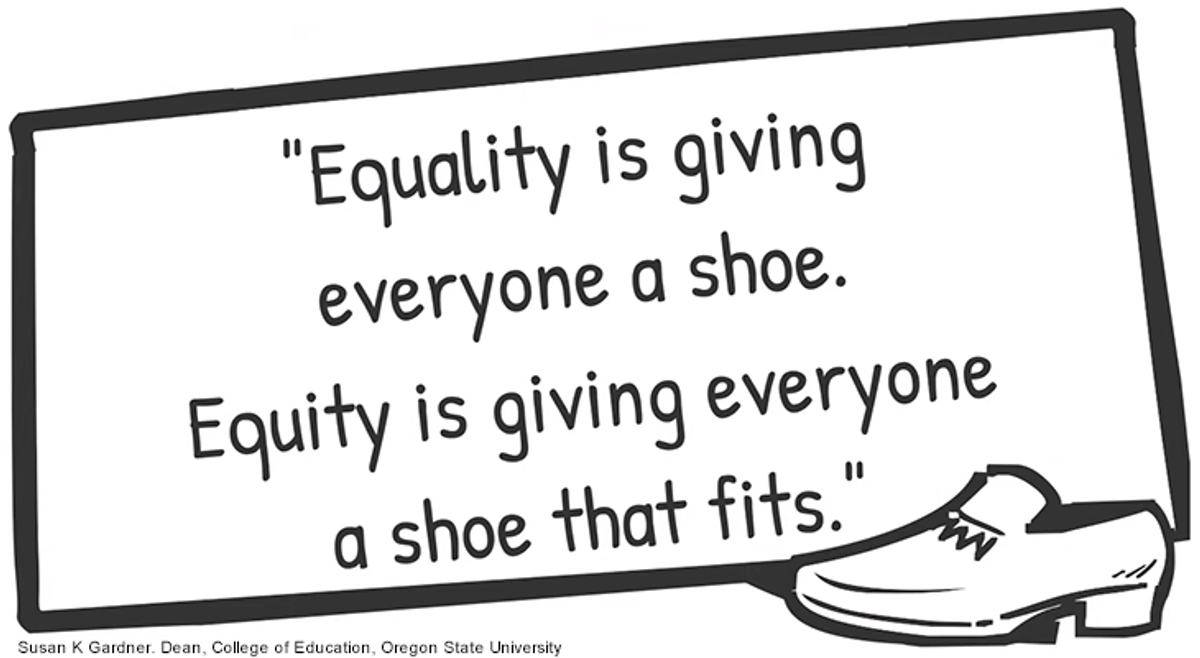Principal

International Women's Day
Today, 8 March, we celebrated International Women’s Day at St Patrick’s College. I was accompanied by Michael Sakr and Anthony Karnaout (Year 11) to the Strathfield Council IWD Breakfast. The theme this year is Equality versus Equity.
What's the difference as we #EmbraceEquity for IWD 2023 and beyond?
The words equity and equality are often used interchangeably.
Etymologically, the root word they share is aequus, meaning “even” or “fair” or “equal” - which led to equity being from the Latin aequitas, and equality from aequalitas. Yet, despite these similarities, equity and equality are inherently different concepts, and the IWD 2023 #EmbraceEquity campaign theme seeks to help forge worldwide conversation about this important issue and its impact.
So, what's the difference between equity and equality - and why is it important to understand, acknowledge and value this?
The IWD 2023 #EmbraceEquity campaign theme seeks to get the world talking about why "equal opportunities are no longer enough" - and can in fact be exclusionary, rather than inclusive.
Defining equality and equity:
Image source: Robert Wood Johnson Foundation
Let's start with a basic definition of each word.
Equality means each individual or group of people is given the same resources or opportunities.
Equity recognises that each person has different circumstances, and allocates the exact resources and opportunities needed to reach an equal outcome.
Equality focuses on providing all genders with equal opportunities, such as a woman's right to vote. Yet, women often require more than a level playing field. They need to belong in a global culture that actively promotes and supports them in all aspects of their life, from education to the workplace to health.
Gender is intersectional, and women as a group are truly diverse. Policies that benefit white women, for example, may not benefit women of colour due to historical or current inequalities. A shift from gender equality to the process of gender equity is required for meaningful progress.
So, let’s make it our mission to educate friends, family, colleagues, and the community on the need for equity.
If you truly believe in forging an equal and inclusive world, then you will truly believe in the need for the world to better understand the difference between equity and equality.
Let's #EmbraceEquity - together!
Testing for Gossip
At the last College assembly, I reiterated our student academic theme for 2023:
Rejoice, Reflect and Restart.
I also spoke to the boys about the toxicity that abounds when people in communities such as ours, spread idle and cruel gossip. I spoke to them about what Socrates said to his contemporaries about the issue.
In ancient Greece, Socrates was reputed to hold knowledge in high esteem. One day an acquaintance met the great philosopher and said, "Do you know what I just heard about your friend?"
"Hold on a minute", Socrates replied. "Before telling me anything I'd like you to pass a little test. It's called the Triple Filter Test."
"Triple filter?"
"That's right", Socrates continued. "Before you talk to me about my friend, it might be a good idea to take a moment and filter what you're going to say. That's why I call it the triple filter test. The first filter is Truth. Have you made absolutely sure that what you are about to tell me is true?"
"No,”, the man said, "Actually I just heard about it and ..."
"All right", said Socrates. "So, you don't really know if it's true or not. Now let's try the second filter, the filter of Goodness. Is what you are about to tell me about my friend something good?"
"No, on the contrary."
"So", Socrates continued, "you want to tell me something bad about him, but you're not certain it's true. You may still pass the test though, because there's one filter left: the filter of Usefulness. Is what you want to tell me about my friend going to be useful to me?"
"No, not really."
"Well", concluded Socrates, "if what you want to tell me is neither true nor good nor even useful, why tell it to me at all?"
Truth, goodness, and usefulness are the foundation of Socrates’ triple filter test.
Socrates thought that a person must ask themselves the following questions before they say anything: “Am I sure that what I am going to say is true?”, “Is what I’m going to say a good thing?”, and “Do I really need to say it and is it useful?”
This triple filter test is an excellent guide, both for what we’re going to say and for what we’re going to listen to. It’s a set of parameters that represent healthy and constructive communication.
How to apply the triple filter test
In everyday life, it’s not easy to define the true, the good, and the necessary. These are abstract concepts that are sometimes difficult to apply. That’s why there are also some additional questions that can help you when it comes to applying the triple filter test:
Regarding the truth: Do I know for a fact that this information is true? Can I bet on it? Will I be able to prove it to anyone? Am I willing to compromise my reputation over this?
Regarding the good: Does it benefit me or the other person? Will it make them or me a better person and evoke positive emotions? Will the situation of those involved improve?
Regarding the necessary or useful: By knowing this message, will that person’s life or my life improve? Can that person take any practical action regarding this information or message? In what way does not knowing this information hurt or affect the other person?
As I pointed out at the beginning, Socrates’ triple filter test is particularly oriented at rumours or gossip. Applying it allows us to put a stop to annoying rumours that sometimes haunt us. However, it’s also valid for other types of messages, such as those we see in social networks.
Step up into Teaching (SUIT) Program Success
St Patrick’s College and the Australian Catholic University (ACU) have been teaming up for the Step Up Into Teaching program, providing high school students the chance to experience university life, gain early entry into teaching courses and receive credit towards their degree.
Step Up Into Teaching (SUIT) is an early entry university program run by the Australian Catholic University (ACU), offering high school students considering a career in teaching a head start on their learning journey.
Students participating in SUIT have the opportunity to study one or two modules equivalent to university level units while completing their high school studies.
Modules include: Aboriginal and Torres Strait Islander Knowledges, Histories and Cultures (EDEZ105) which develops students’ understanding of, and respect for Indigenous culture; and Digital Cultures and Capabilities (EDEZ104), which helps students understand the influence of digital technologies on contemporary life.
Students who pass their SUIT studies will receive an offer to study a Bachelor of Education degree at ACU and can receive credit (recognition of prior learning) for one or two specified units in early childhood, primary or secondary teaching courses.
I am delighted to announce that four of our Year 12 students have completed their SUIT program, a program that commenced at the end of 2022:
- Anthony Angelone
- Nicolas Delimitros
- Dominic Smith
- Blake Wilson
The four of them successfully completed their two university subjects, EDEZ100 Understanding Learning and Teaching and EDEZ104 Digital Cultures and Capabilities. They will soon receive an early offer into an Education program at ACU and we will remain connected to them as they study by offering them employment as tutors, learning support officers and sports coaches. We are very proud of these young men and are delighted to have played a part in encouraging people into the education sector.
Dr Vittoria Lavorato
Principal
SPC boys can do anything!
**except divide by zero











